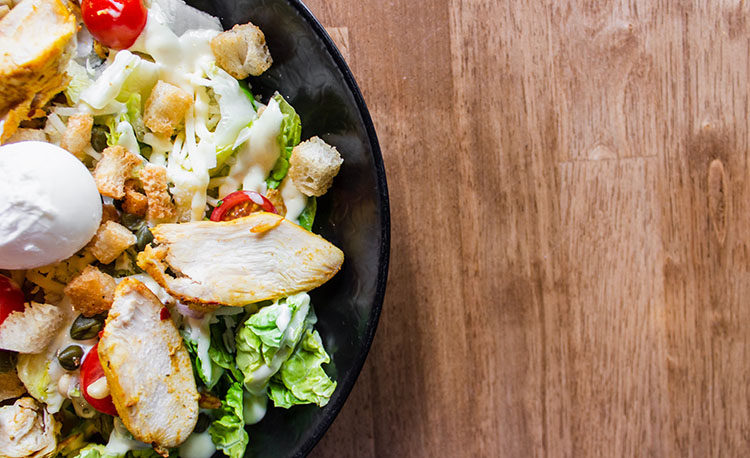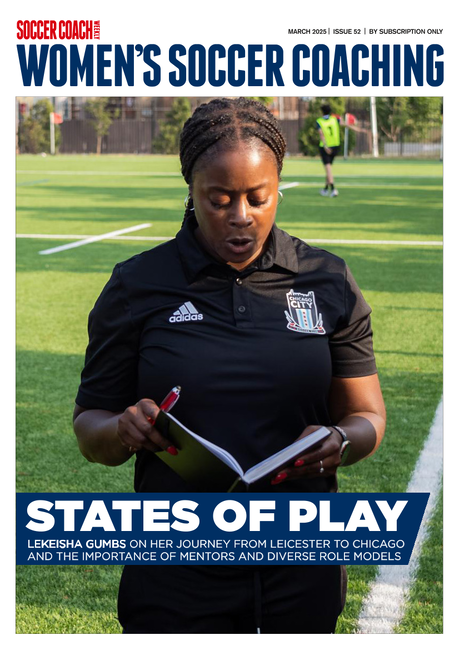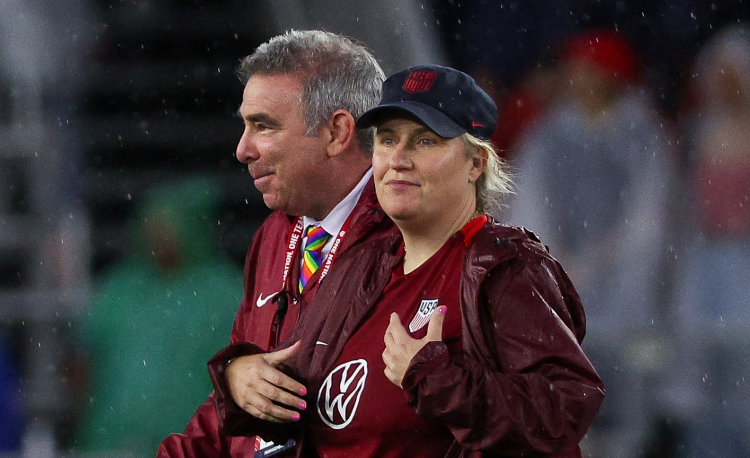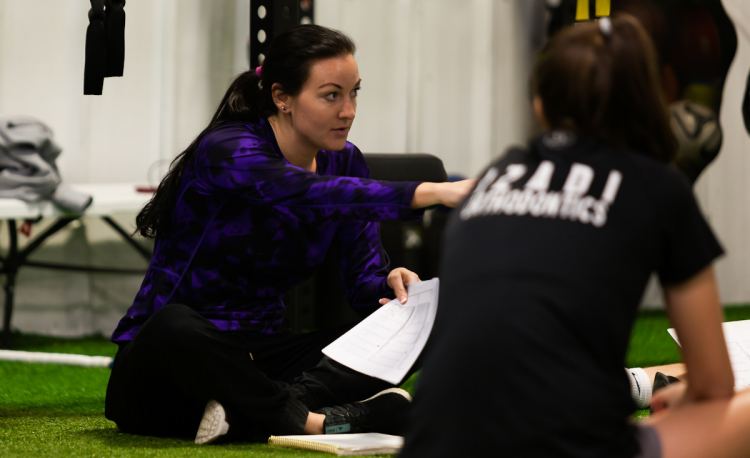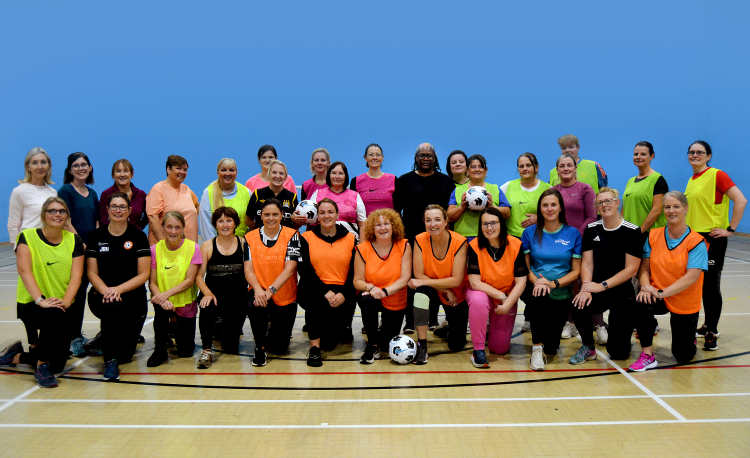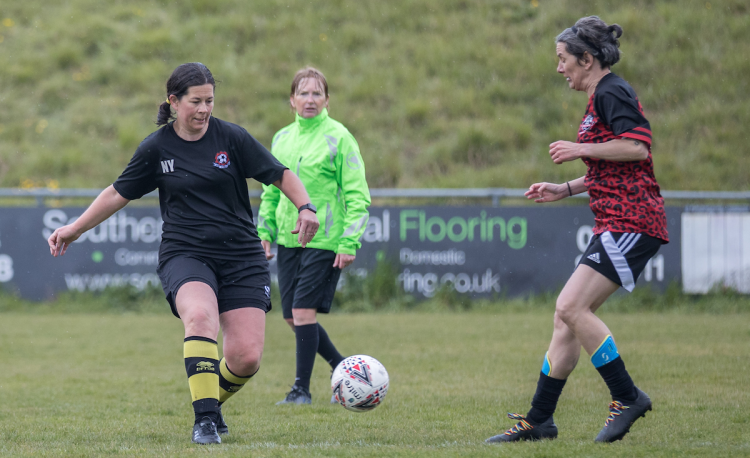You are viewing
1 of your 3 free articles
Fuelling the female footballer
Eating the right foods in the right quantities at the right time helps players maximise performance and prevents injury. Nutritionist TANYA KUMAR provides her top tips
Like strength and conditioning and video analysis - both of which we have covered in these pages - nutrition plays a huge part in the ’team behind the team’ at leading clubs.
Knowing what to eat, and just as crucially when, is a science being applied at various levels of the game. But many at grassroots level are unlikely to have access to a full- time, qualified nutritionist and it is left to coaches to fill in the blanks.
We asked Tanya Kumar, nutritionist at London City Lionesses, who play in England’s second tier, about fuelling, injury prevention, how you can create a healthy environment at your club and what meals players should be eating on matchdays.
Here are Tanya’s top tips...
Encourage players to track their cycle and eat the right foods accordingly
TK: "The menstrual cycle can be broken down into a high-hormone phase and a low- hormone phase.
"In the lower-hormone phase, days 1-13, females may experience increased inflammation, so foods that reduce inflammation - those rich in Omega 3, like oily fish, walnuts and chia seeds - are important.
"Digestive issues may be another key symptom. Foods rich in vitamin B6, such as meat, eggs, chickpeas, potatoes and bananas, can help relieve that.
"Females also lose iron through blood. So iron deficiency, tested through blood samples, is potentially going to be more prevalent in female footballers.
"This can be corrected through the diet by including more iron-rich foods or considering supplementation.
"In the high-hormone phase, days 15-28, it is more difficult for females to access carbohydrate stores, so ingesting carbs during training - in the form of a sports drink or snack - may be more important.
"Muscle breakdown also increases so it’s important to focus on getting 25-35g of high-quality protein every three to four hours and within 30 minutes after exercise."
Don’t assume that one size fits all
TK: "Menstrual cycle symptoms can vary completely within individuals. Some females can suffer a lot more severely around their cycle than others.
"It’s really important players don’t just see it as something that can hinder performance. They should create a strategy so they can still perform around the symptoms.
"So, things like supplementation can be really valuable, increased carbohydrates for fuelling, increased branched-chain amino acids and protein before and after training. It’s important players find something that works for them."
The menstrual cycle also holds the key to prevention of injuries
TK: "Knee injuries are more prevalent in females, particularly ACL injuries, and females’ tendons and ligaments are looser in day 10-12 of their cycle.
"So by tracking their cycle, female players can be aware of when that period is and lower the risk by increasing protein intake, potentially supplementing with things like collagen and vitamin C.
"Collagen is the key structural protein in our ligaments and tendons. Supplementing with it can increase the strength of those ligaments and tendons, and vitamin C with it will increase the absorption of collagen.
"You can also get collagen from gelatine, so things like jelly and fruit are a perfect thing to have before training as a nutritional way of of trying to prevent these injuries that are more prevalent in females."
The right nutrition can aid the long- term injured, too
TK: "First, figure out what their training looks like now and how has it been tapered down? Then, how is that going to impact the energy they’re expending each day? And how do you adapt their nutrition to ensure they don’t increase in body fat, don’t lose muscle mass and return to playing as quickly as possible?
"Things like vitamins and minerals, from a variety of fruit and veg, are extremely important when a player is injured because it’s possible their immune system is down, and this may be a time where they’re at greater risk of getting ill.
"It’s just making small adaptations to energy intake, considering supplementation that can be beneficial, making sure the diet is rich in vitamins and minerals, that they’re getting enough carbohydrate to fuel rehab and then high protein to be able to repair and recover."
TANYA’S MATCHDAY NUTRITION GUIDE
PRE-MATCH MEAL
3-4 hours before kick-off
High-carb, moderate-protein, low-fat, low-fibre meal (1-3g per kg of body mass)
One of the following:
- Porridge made with milk, with banana/honey
- Protein pancakes with low-fat Greek yoghurt, berries and honey
- Pasta with tomato sauce, chicken + salad
- Chicken burrito with rice and salad
PRE-MATCH SNACK
1-2 hours before kick-off
(30g-60g) - one of the following:
- 1 large banana (30g carbs) Up to 60 minutes after - post-match meal
- Nature Valley cereal bar (27g) Chicken katsu curry with rice and salad (protein/carbs/fat)
- Energy gel (22g) Up to 3 hours after - home meal
- 30g dried fruit (20g) Salmon & vegetable stir-fry with noodles (protein/carbs/fat)
- Isotonic sports drink (25g–40g) Up to 6 hours after - snack
HALF-TIME SNACK
Use pre-match snack above
POST-MATCH RECOVERY
Immediately after - recovery snack: Whey protein shake and banana (protein/carbs)
Up to 60 minutes after - post-match meal: Chicken katsu curry with rice and salad (protein/carbs/fat)
Up to 3 hours after - home meal: Salmon & vegetable stir-fry with noodles (protein/carbs/fat)
Up to 6 hours after - snack: Greek yoghurt with fruit and 1 tsp honey (protein/carbs)
Pre-bed - recovery drink: 500ml skimmed milk
Related Files
Players need educating around good weight gain and bad weight gain
TK: "I wouldn’t say it’s necessarily completely isolated to females, but there’s a misconception that by increasing the amount you eat, you’re going to increase body fat and put on weight.
"It’s an education around good weight and bad weight and that an increase in weight isn’t always a bad thing for performance."
Players may want to know the science of nutrition - but they don’t have to
TK: "Some love to know all the science behind it - it motivates them to stick to it. A lot don’t care about the science, they just want to know what to eat and when.
"Whether they are into the science or not, it is really important to make it practical advice. So if they need to increase weight and put on muscle mass, what does that look like in terms of foods and meals? And how can they get that adequate protein and calorie intake through foods around their training to achieve that goal?"
And if you as a coach want to know, read on...
TK: "If you break it down, we have our macronutrients - which are carbohydrate, protein and fat - and micronutrients, which are vitamins and minerals.
"Carbohydrate is effectively the body’s main source, and preferred source, of fuel. Protein is what we need to repair and grow muscle, and fat plays a role in energy production. It protects us and plays a role in regulating important bodily functions.
"My key advice is to create an environment that promotes good nutrition behaviours"
"So we need those in optimal amounts - if any of those are insufficient, that’s when it can impact performance and energy levels, and potentially increase risk of injury. From a psychological point of view, it can impair decision-making and reduce concentration.
"And, just like the macronutrients, if you’re not getting enough vitamins and minerals that can impact things like immunity and ability to produce energy.
"So it’s really important to check that players are getting enough of the vitamins and minerals they need, enough carbohydrate to fuel their training and games, enough protein to be able to recover and a sufficient amount of fat in their diet?"
Don’t have access to a nutritionist at your club? Here is Tanya’s advice...
TK: "I think my key bit of advice would be to create an environment that promotes good nutrition behaviours. This would be things like visual aids, posters around the ground and in the changing room.
"Create recovery stations, so having protein shakers and fruit for when footballers come off the pitch, then straight away from training they can start that recovery process.
"Things like urine colour charts in the changing room will get the players thinking about hydration. And then, on matchdays, create the environment in the dressing room to encourage players to fuel pre-match and at half-time.
"The FA have some really good resources specifically for female footballers, and how they can fuel around training and adapt that to game day."
Newsletter Sign Up
Newsletter Sign Up
Discover the simple way to become a more effective, more successful soccer coach
In a recent survey 89% of subscribers said Women's Soccer Coaching makes them more confident, 91% said Women's Soccer Coaching makes them a more effective coach and 93% said Women's Soccer Coaching makes them more inspired.
*includes 3 coaching manuals
Get Inspired
All the latest techniques and approaches
Women's Soccer Coaching offers proven and easy to use soccer drills, coaching sessions, practice plans, small-sided games, warm-ups, training tips and advice.
We've been at the cutting edge of soccer coaching since we launched Soccer Coach Weekly in 2007, creating resources for the grassroots youth coach, following best practice from around the world and insights from the professional game.
